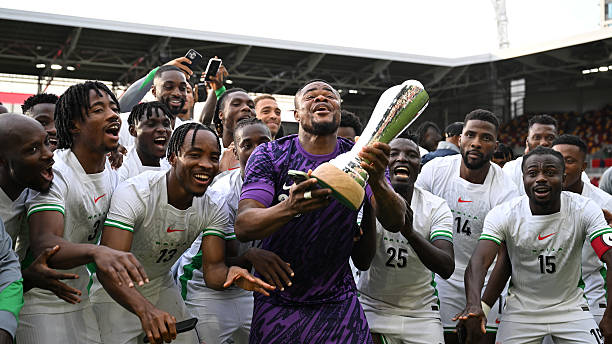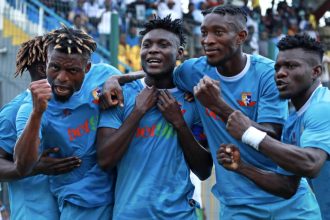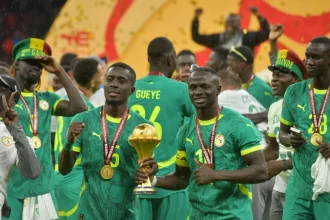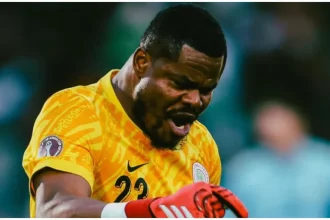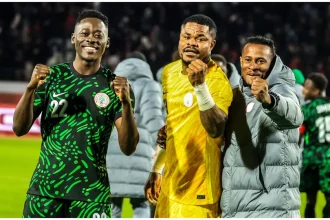The Unity Cup 2025 final was more than just a showcase of skill; it was a fascinating tactical battle between Nigeria’s Eric Shell and Jamaica’s Steve McLaren, punctuated by moments of high drama and fiery on-field confrontations. While Nigeria ultimately triumphed on penalties after a 2-2 draw, the journey to the shootout was a compelling chess match.
Nigeria, under Shell, started with an intent to leverage their attacking talents, with four changes from their semi-final lineup, including debuts for Felix Agu and Benjamin Fredrick in defense. The early goal from Moses Simon, stemming from a well-worked move involving Cyril Dessers, suggested an early attacking dominance. However, Jamaica’s almost immediate equalizer through Kaheem Dixon, born from Renaldo Cephas’ direct wing play, forced a rethink and highlighted a potential vulnerability to swift counters against Nigeria’s new defensive pairing.
The first half saw both coaches animated, with Eric Shell even receiving a yellow card. The game’s physicality was evident, with numerous fouls and bookings for players like Dixon, Johnathan Russell, and Kasey Palmer for Jamaica. This intensity reflected the high stakes and the desire of both managers to gain an edge.
In the second half, Samuel Chukwueze’s individual brilliance to put Nigeria 2-1 up showcased the quality Shell has at his disposal. However, McLaren’s Jamaica responded tactically, with substitutions like Dwayne Atkinson and debutant Malik Mothersille aiming to inject fresh attacking impetus. The move paid dividends as Renaldo Cephas, consistently exploiting spaces, provided his second assist for Johnathan Russell’s equalizer.
Both managers utilized their benches extensively as the game wore on. Nigeria brought on Tolu Arokodare for Nathan Tella, shifting their attacking dynamics, and later introduced Kelechi Iheanacho and Bruno Onyemachi to bring fresh legs and experience. Jamaica’s introduction of Ravel Morrison for Kasey Palmer was a like-for-like change aiming to maintain creative pressure.
The decision to go to penalties often feels like a failure of either side to decisively break the other down tactically in the preceding 90 minutes. In this instance, it was more a testament to Jamaica’s resilience in nullifying Nigeria’s leads and Nigeria’s inability to land a knockout blow despite their periods of ascendancy. The feisty nature of the encounter, with several yellow cards and heated exchanges, underscored the tactical pressure and the fine margins each coach was working with in this memorable Unity Cup final.

